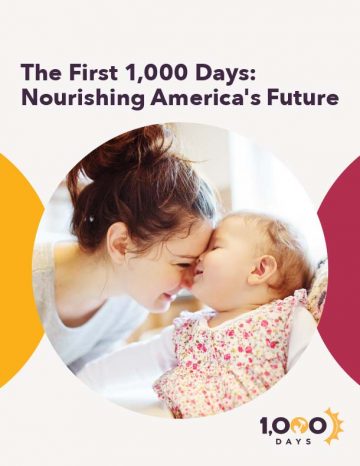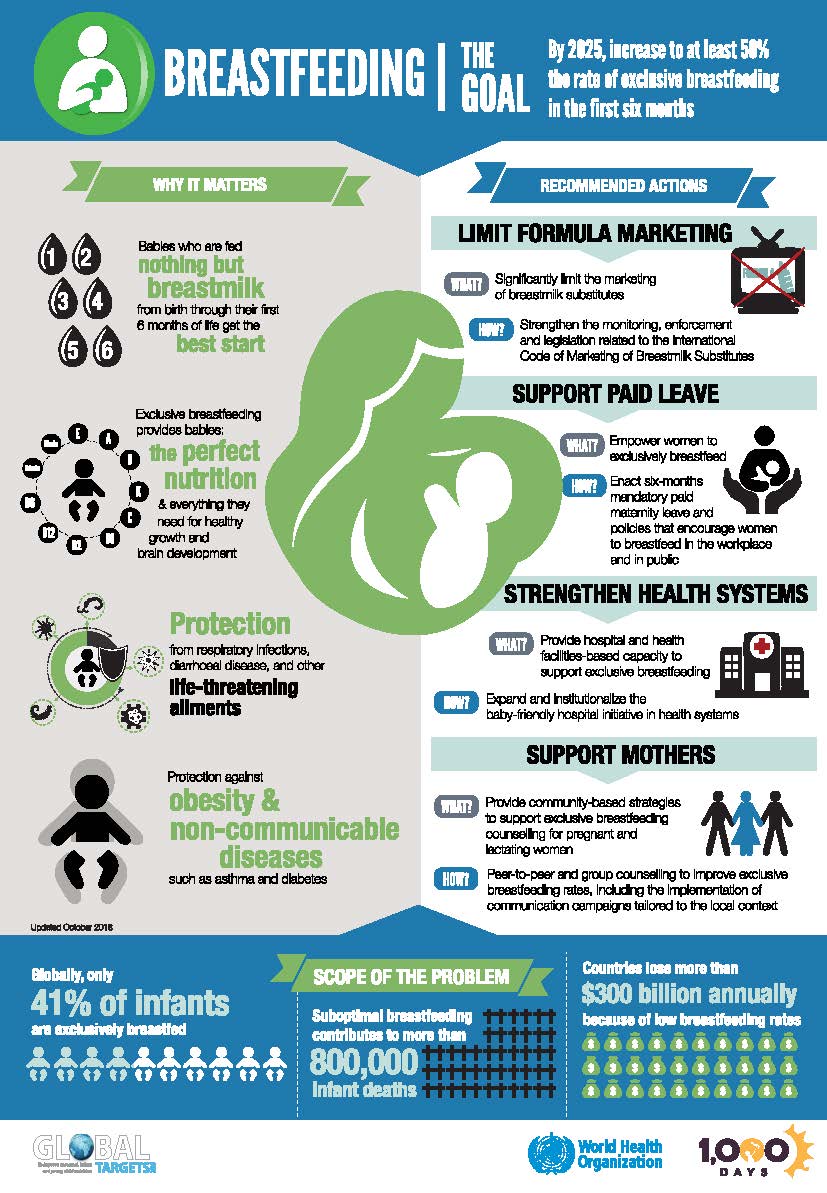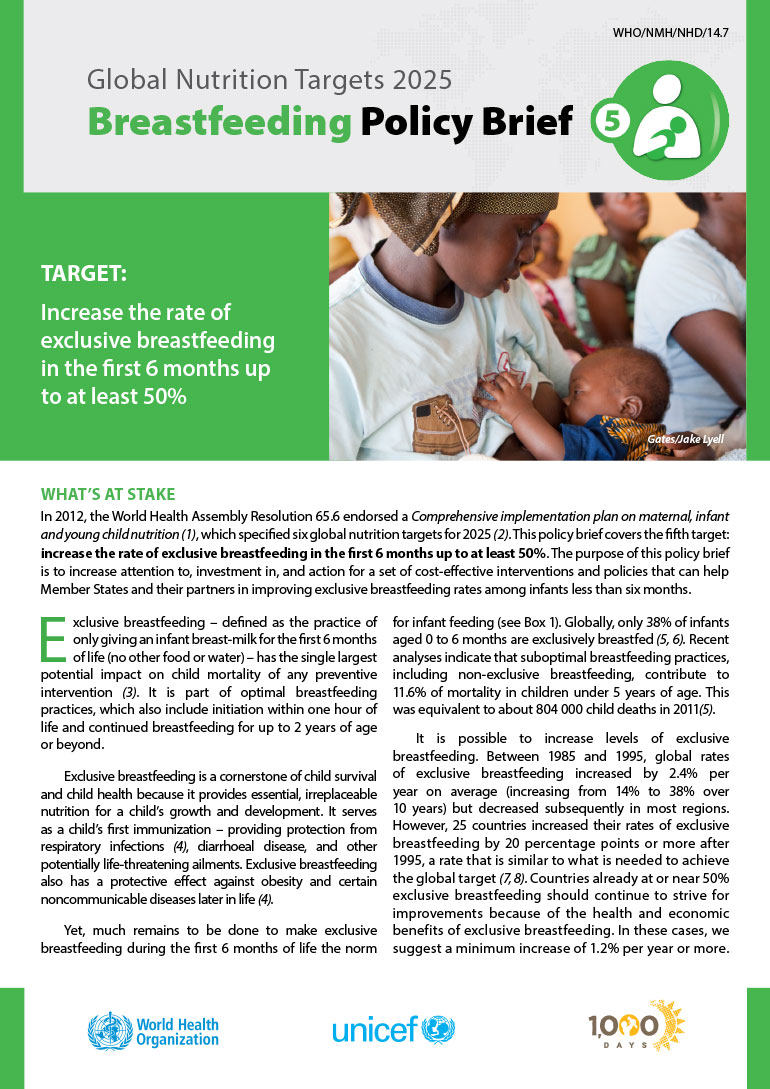The First 1,000 Days: Nourishing America’s Future
The problem of poor nutrition is pervasive throughout the U.S. Too many American women and young children suffer from high rates of obesity, food insecurity, unhealthy diets, and low rates of breastfeeding. In order to illuminate the challenge of malnutrition in the United States and galvanize a movement to ensure that every child has a healthy start to life, 1,000 Days – with support from the W.K. Kellogg Foundation and the David and Lucile Packard Foundation – launched a first-of-its-kind report on the nutritional health of America’s mothers, babies and toddlers.



